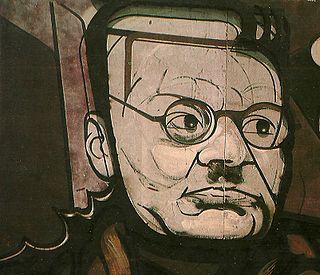A Quote by David Hume
A CAUSE is an object precedent and contiguous to another, and so united with it that the idea of the one determines the mind to form the idea of the other, and the impression of the one to form a more lively idea of the other.
Related Quotes
Pictures are the idea in visual or pictorial form; and the idea has to be legible, both in the individual picture and in the collective context - which presupposes, of course, that words are used to convey information about the idea and the context. However, none of this means that pictures function as illustrations of an idea: ultimately, they are the idea. Nor is the verbal formulation of the idea a translation of the visual: it simply bears a certain resemblance to the meaning of the idea. It is an interpretation, literally a reflection.
The idea is that to grasp an idea like equality or justice, you can't look at the equal and just or unjust things in the world around you, you have to somehow ascend to or maybe remember some kind of idea of equality and justice and this would be a Platonic form, and it would be different from the things that partake in the form.
Upon the whole, necessity is something, that exists in the mind, not in objects; nor is it possible for us ever to form the most distant idea of it, consider'd as a quality in bodies. Either we have no idea of necessity, or necessity is nothing but that determination of thought to pass from cause to effects and effects to causes, according to their experienc'd union.
In every painting, as in any other work of art, there is always an IDEA, never a STORY. The idea is the point of departure, the first cause of the plastic construction, and it is always present all the time as energy creating matter. The stories and other literary associations exist only in the mind of the spectator, the painting acting as the stimulus.
The idea of, say, the compressed space between the floor and the object hanging over it and then the long space between the object and the ceiling was a kind of interesting idea for me - the idea of compressing and expanding. That was an idea that I worked with, which you could only do sculpturally. You can't really do with a painting on the wall.
Regarding pushing the form, ideas interest me more than form. I think you can write a very subversive play in a three-act structure. The content makes the play. I feel the form is simply dressing, because ultimately, you want to communicate to the audience, and sometimes the best way to do that is to present a provocative idea in a format that is comfortable for them to receive. Then the idea will come through directly, right in solar plexus. After all, I want to make a living as an artist, and that means speaking to the audience in a form they can understand.
No thought, no idea, can possibly be conveyed as an idea from one person to another. When it is told it is to the one to whom it is told another fact, not an idea. The communication may stimulate the other person to realize the question for himself and to think out a like idea, or it may smother his intellectual interest and suppress his dawning effort at thought. But what he directly gets cannot be an idea. Only by wrestling with the conditions of the problem at first hand, seeking and finding his own way out, does he think.
I wrote [Collateral Beauty] on my own. I didn't get paid to write it. I didn't sell it as a pitch. It was an idea I had that I really, really felt needed to be in script form before showing it to anyone in the industry because of the uniqueness of the idea, and the weirdness of the idea, to be frank.
Now, ideas are the raw material of progress. Everything first takes shape in the form of an idea. But an idea itself is worth nothing. An idea, like a machine, must have power applied to it before it can accomplish anything. The men who have won fame and fortune through having an idea are those who devoted every ounce of their strength and every dollar they could muster to putting it into operation. Ford had a big idea, but he had to sweat and suffer and sacrifice to make it work.








































